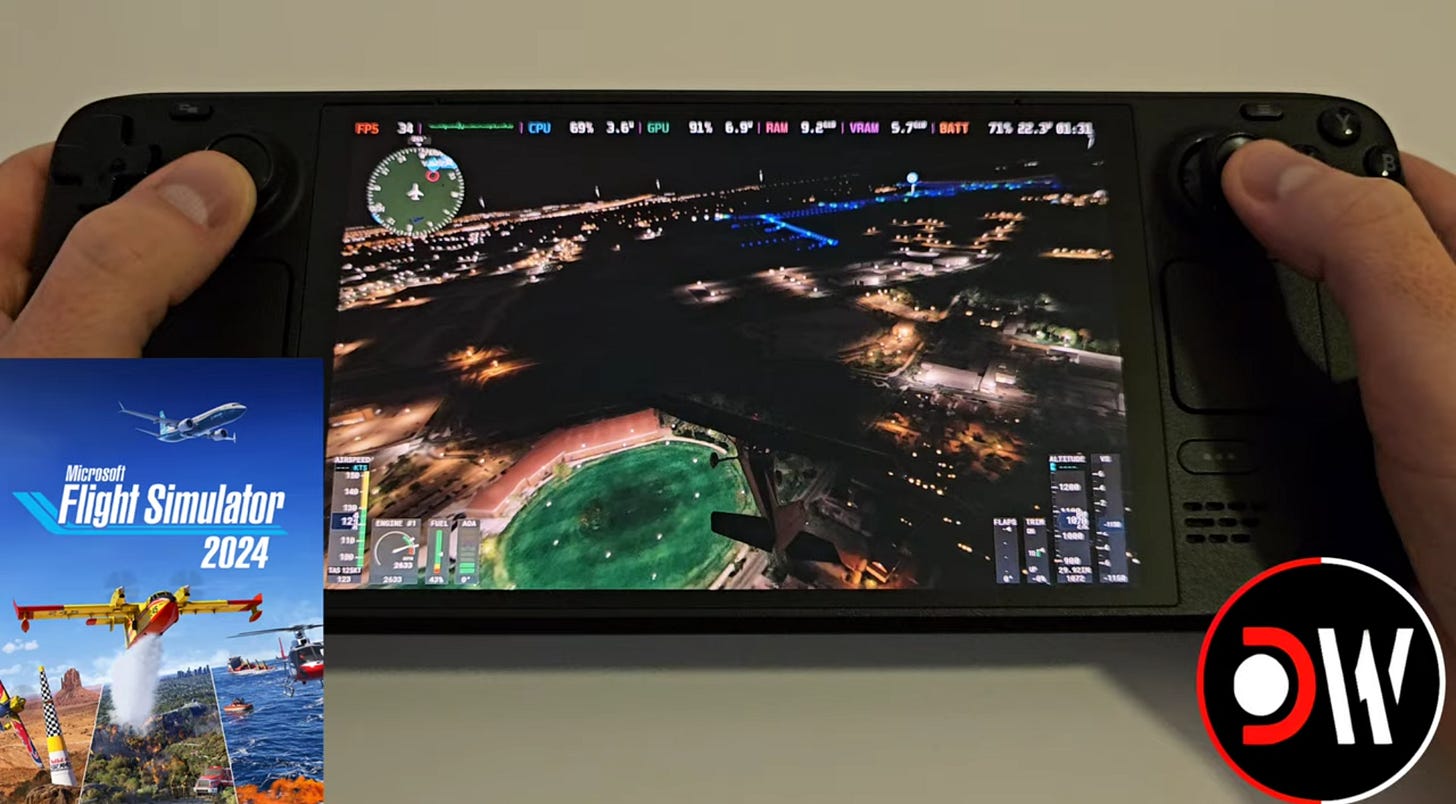Begun, the handheld wars have: how the industry's living room rivals have signified a coming arms race for power over your palms
Or, how Xbox may find salvation in a rectangle.
It is quite easy to deride mobile gaming. If you were to peruse the Google Play store at this present moment, you would likely find legions of predatory actors, designed to harvest your credit card with a touch and an unwitting verification. Nevertheless, this market has become vital to the ambitions of major players and wily opportunists. Last year, Take-Two - purveyors of Rockstar Games and 2K writ large - purchased Zynga for $12.7 billion, greater than Microsoft’s $7.5 billion acquisition of ZeniMax. Whether FarmVille is a more lucrative property than The Elder Scrolls is an argument that can either be settled in creative or commercial terms - the former is certainly a much more fruitful harvest, whereas the latter is a vestige of the medium’s traditional dogma.
An agrarian fantasy can be almost as powerful as one of swords and sorcery.
Evidently, publishers believe in the necessity of a sound mobile division. In turn, dedicated handhelds have fallen out of favour; shaving time from one’s mobile phone is difficult to argue for. Broadly, unless you have a rather generous backpack for your travels, carting around a laptop and a portable console alone makes for a laborious trip. Additionally, having to cede space in rush hour makes comfort a coveted commodity. Thus, swift mobile experiences have surpassed robust titles - that Resident Evil 4 and Death Stranding are playable on an iPhone represents a novel feat than a vital feature.
The Nintendo Switch has thrived not due to a lack of competition, rather its omnivorous presentation; that it can be used through a TV or on a train is a play for two separate demographics. Therefore, against reports both Microsoft and Sony are developing handheld consoles that can run titles natively, rather than through the cloud, these diametric foes are kindred in their misjudgement. Microsoft, in particular, cannot make a compelling argument for consumers to migrate to their service. Given the prominence of the Steam Deck in the handheld computer space, sketching Valve as a competitor rather than drawing a pact with their platform is regrettably consistent with their poor platform philosophy. If your flagship platform has been bested by its direct competitor 5:1 and you are planning to decentralise your first-party titles, the law of diminishing returns suggests a device designed for this market will fare worse than its mass consumer kin.
Courtesy of DeckWizard on YouTube, you can run Microsoft Flight Simulator 2024 on a Steam Deck.
PlayStation, conversely, have strengthened their stable significantly this past decade, limiting their leading licenses to their platforms and Steam - again, another argument against a native Xbox handheld. Though the PlayStation Portal caters for … well, somebody, its relegation to Remote Play only makes it a homebody of an accessory, not a flexible proposition. Indeed, playing God of War on the go makes for an enticing novelty, though the cinematic mechanics of their Triple A titles may not translate effectively to a smaller screen - power draw notwithstanding. That the studio wants to run PlayStation 5 titles through its hardware suggests they perceive the Steam Deck as its closest rival, not Nintendo - as I mentioned earlier, their games are designed to suit either format, rather than being retrofitted. As their last attempt to compete in this space eventuated in the demise of the PlayStation Vita - a principally perfect object that failed to cultivate a lively, parallel playerbase, drawing upon ports of past titles and niche third-party experiences - their bullishness cannot be drawn from precedent, rather promise.
Ultimately Microsoft and Sony are trying to create demand instead of responding to it. These monoliths are attempting to create a middle-class of consumers, situated between premium portable computer owners and casual Nintendo converts. For Sony, those with a remote measure of interest likely own either a PS4 or a PS5, enticed by its theatrical texture; they would have little interest in these experiences on a smaller screen. In Microsoft’s respect, those with a Games Pass subscription can stream their titles to their phone or play locally on their laptop: why add an additional piece of hardware to their library? It seems counter to their erstwhile claim that everything is an Xbox, prominently featuring a prospective rival handheld in its marketing. Until then, if you are after a cool way to experience the magic of Microsoft, the Xbox Fridge seems pretty portable to me.





I’m excited to see what happens in the space of handhelds. I have a steam deck and a switch now - I’d like to see what the switch 2 does as a proposition and then where valve takes the steam deck. (I hope they will make a next gen at some point and not abandon it). The Widnes handhelds just put me off as we are not a windows household for a reason 😂 but maybe they will invest in a better user interface.
"Ultimately Microsoft and Sony are trying to create demand instead of responding to it."
A great summary of how I feel about the new handheld announcements.